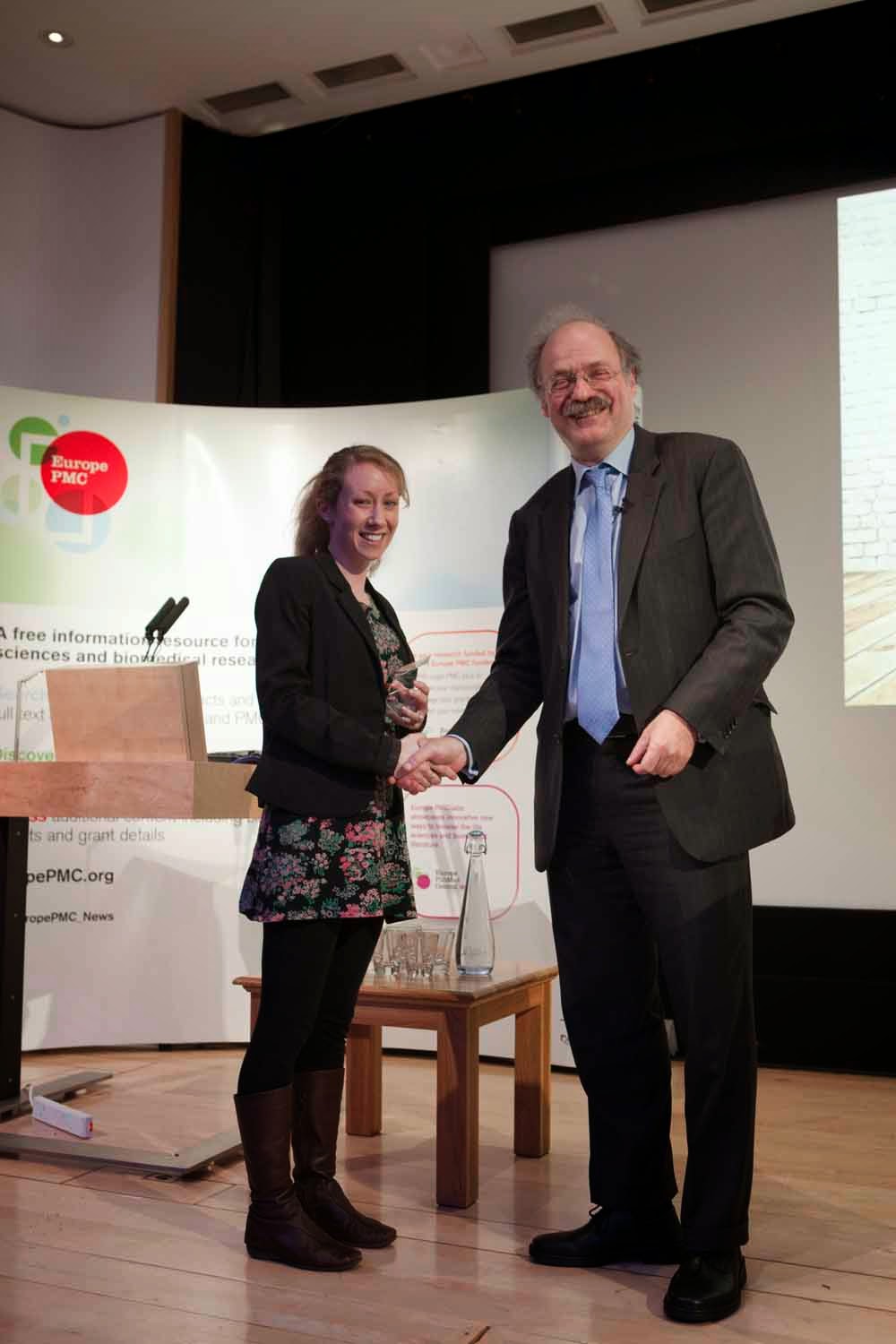Note: Elizabeth was awarded second place in this year’s Access to Understanding competition. Check back tomorrow to read her winning entry. Congratulations Elizabeth!
Writing always terrified me. Growing up, I didn’t enjoy English at school; I positively hated it. It all seemed to be about big words and complex detail. But I didn’t really care; I was going to be a scientist! And who needs to worry about being good at writing when you’re a scientist?
 |
| Elizabeth receiving her award from Sir Mark Walport ©The British Library Board |
Fast forward ten years to my doctoral studies. I found myself becoming increasingly frustrated reading poorly written research articles. Scientists were desperately trying to look impressive by using long complex paragraphs of words to explain work that could easily be summarised in a sentence. I would spend hours reading and re-reading a single article trying to get my head around the unnecessary (and often wrong) use of words, all the while wondering how an interested member of the public might fare. Someone newly diagnosed with a particular disease may be curious as to what the latest research means for them, or maybe a scientific documentary inspired another to read on further. Whatever the reason, these people would find the jargon filled, over complicated, research articles impossible to understand.
Often, the media is the messenger between scientist and non-scientist, and is usually fairly accurate in its reporting. Unfortunately however, many newspaper articles describing current scientific findings are headed by misleading, sensationalised titles and content, particularly when it comes to medical research. ‘Food X causes cancer!’ or ‘Food Y prevents cancer!’ can be weekly occurrences in some heavily read tabloids, at best misleading the public; at worst outright scaring them.
That’s the beauty of Access to Understanding. It promotes simple, yet accurate scientific writing intended for interested members of the public often bewildered by the science which directly impacts upon their daily lives. The competition requires entrants to summarise a research article in plain English, which is then checked for its scientific accuracy and judged. I chose an article from Dr Stephen Young’s research group at Birmingham University, which detailed some exciting possibilities for alleviating rheumatoid arthritis, something I knew almost nothing about beforehand. This was actually beneficial, as I needed to simplify the information to understand it myself.
The competition has raised an important issue, and hopefully in the not too distant future, scientists will be asked to provide a lay summary when they publish their work, to help make research accessible to anyone who is interested in it. Encouraging the next generation of scientists to write in plain English will help immensely, which, I was pleased to hear, is already happening at Dr Young’s University.
Writing no longer terrifies me quite as much as it used to. Access to Understanding has helped me to realise that a good piece of writing doesn’t always involve fancy words and in-depth descriptions. Sometimes, keeping it simple is best. After all, what’s the point of writing something if most people can’t understand it?
Look out here and on Twitter @EuropePMC_news for further competition news and other Europe PMC announcements.



